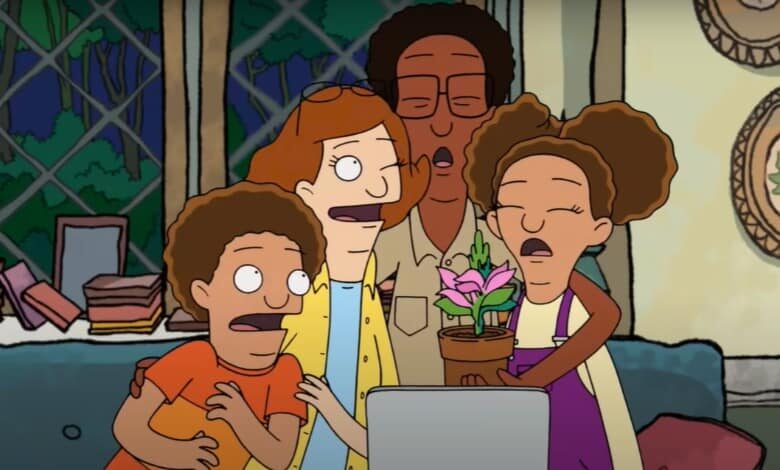Hollywood Erases Blackface, Whites Voicing Black Roles, But It’s Not Enough
Woke Left is never, ever satisfied, and it's happening all over again

Hollywood is scrambling to erase its history, its present and parts of its future.
Scripts are being jettisoned for fear of conflicting with the Black Lives Matter movement. White actors are voluntarily quitting gigs where they voice characters of color. TV episodes with a whiff of “blackface” are being memory holed.
The latter shows impacted by this trend include:
- Scrubs
- Community
- Little Britain
- The Office
- 30 Rock
- W/Bob and David
- The Golden Girls
The last show’s removal enraged The Mary Sue, one of the wokest web portals in the digital realm. The outrage came, in part, because the episode in question didn’t actually feature blackface.
First of all, Black people love Golden Girls, so we would have like to have been consulted on this, because then we could have told everyone that … it was a mud mask, not to mention the episode in question, where this happens, is called “Mixed Blessings,” which aired in 1988. In the episode, Dorothy’s son Michael gets engaged to a much older Black woman named Lorraine, played by Rosalind Cash. There’s conflict because Dorothy doesn’t think Michael should marry a woman twice his age, and Lorraine’s mother doesn’t want her daughter marrying a “skinny white boy….”
This is the kind of bad-faith decision-making that builds resentment for Black people rather than accepting true accountability.
The author isn’t done, though, arguing that a show that remove “blackface” moments “comes off as performative.”
RELATED: Is Linda Belcher Going to Be Cancelled Next?
The real purpose of the article comes next:
If Hollywood and media want to do things that actually matter, going forward, they should hire more POC in front of and behind the camera. They should greenlight more diverse projects that are not just about ethnic suffering. They should donate their Blackface money to BLM, the NAACP, or the Black Trans Advocacy Coalition.
The Grio, a news site dedicated to serving black readers, says stars like Kristen Bell given up bi-racial character roles isn’t enough.
So before we pat [Jenny] Slate and Bell too hard on the back for making a decision to give up roles that they KNEW were shady to take to begin with, let’s also remember to call out the entire gatekeeping racket of animation that allows these decisions to fall into their hands to begin with. Yes, Black roles should go to Black voice actors, but they should be considered for any other character roles, from talking rabbits to cyborgs and yes, white people, because it’s about time Hollywood realized that Black animated voices matter too.
The Root followed a similar line of thinking. The site argues the current racially-based scrambling in La La Land is about guilt, not progress.
Others who noticed the trend expressed cynicism, especially considering the fact that most of the benefits from the show (such as royalties) have already been collected and the damage has been done….
To me, these empty efforts to implement quick fixes in order to solve a systemic plague in Hollywood weren’t necessarily made with the marginalized in mind, but to assuage guilt.
It’s likely these same cultural voices would be outraged if Bell, Slate and others kept on voicing the characters in question. Why else did we see an extended, and successful, campaign to block Hank Azaria, who is white, from voicing Apu on “The Simpsons?”
It’s instructive that The Root author isn’t happy that the folks who canceled “The Golden Girls” missed the cultural point being made on the episode.
The reaction to Hollywood’s attempt to “fix” cultural wrongs is similar to the reception “Booksmart” received last year. The teen comedy may be the wokest film in recent memory. The film’s leads proved progressive to the core, dressed like Soviet-style citizens and walked on eggshells for fear of offending their peers.
Here’s Buzzfeed’s complaint about the film’s regressive streak:
The movie is generous in exploring how high school may have become a kinder, more progressive place in some ways and not changed at all in others. But there’s one area where it doesn’t feel of the moment, and that’s when it comes to acknowledging its underlying class dynamics, and how much privilege can impact what gets interpreted as intelligence, or achievement (or make up for the lack of it).
